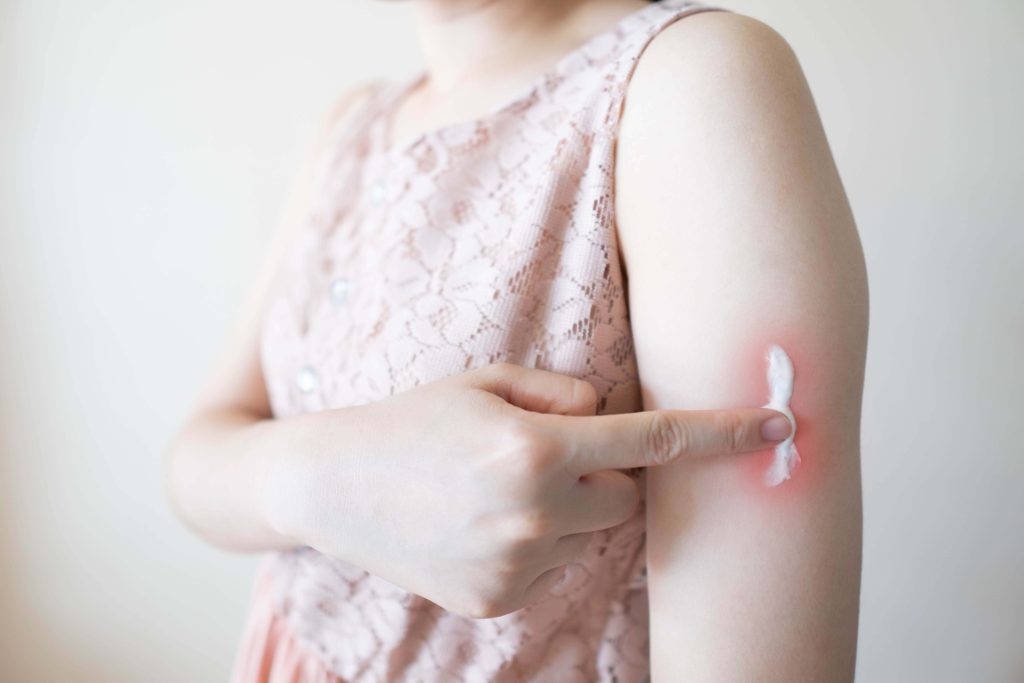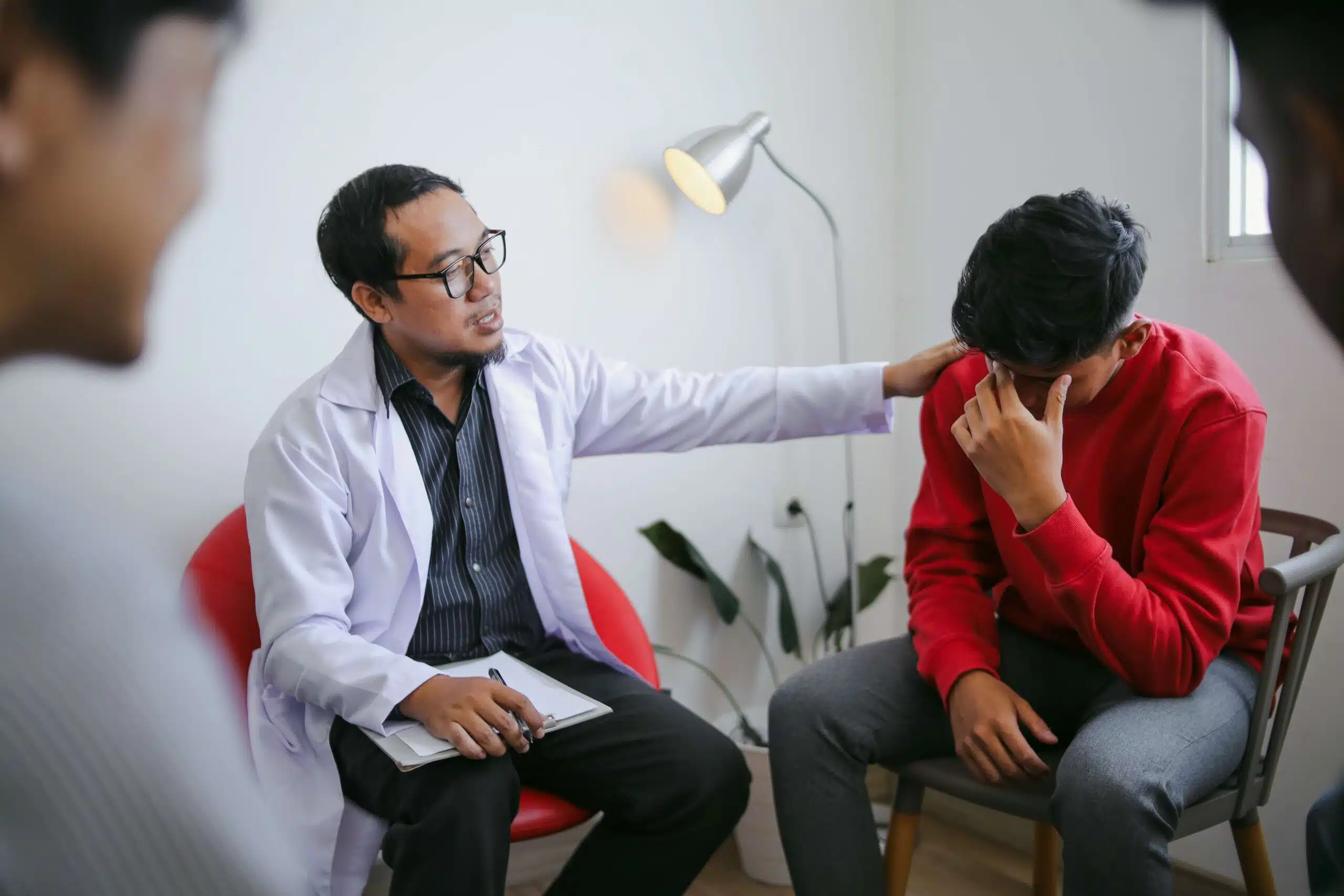How to Avoid Topical Steroid Withdrawal
Understanding Topical Steroid Withdrawal
Topical steroid withdrawal (TSW), also known as Red Skin Syndrome or Steroid Addiction, is a condition that can occur after prolonged use of topical corticosteroids. These medications are frequently prescribed for skin conditions like eczema and psoriasis due to their effective anti-inflammatory properties. However, improper use or prolonged application can lead to dependency, making it crucial to understand how to avoid TSW.

What is Topical Steroid Withdrawal?
Definition and Symptoms
Topical steroid withdrawal refers to the range of symptoms that arise when someone who has been using topical corticosteroids for a long time suddenly stops. Common symptoms include intense redness, burning, stinging, and flaking of the skin. These symptoms are often more severe than the original skin condition being treated and can be both physically and emotionally distressing.
Strategies to Avoid Topical Steroid Withdrawal
Responsible Steroid Use
Short-Term Use
One of the most effective ways to avoid TSW is to use topical steroids for the shortest duration possible. Healthcare providers generally recommend using the lowest effective dose to control symptoms and then tapering off as soon as the condition improves. This approach minimizes the risk of the skin becoming dependent on the medication.
Follow Medical Guidance
Always follow the guidance of a healthcare professional when using topical steroids. This includes adhering to prescribed dosages and application schedules. Regular follow-up appointments allow for the monitoring of skin condition and adjustments to the treatment plan as needed.
Gradual Reduction of Steroid Use
Tapering Off
If you have been using topical steroids for a prolonged period, it is crucial to taper off the medication gradually rather than stopping abruptly. This allows the skin to slowly adjust and regain its natural ability to manage inflammation. A dermatologist can provide a tapering schedule tailored to your specific situation.
Alternative Treatments During Tapering
During the tapering process, incorporating non-steroidal treatments can help manage symptoms and support the skin’s healing process. Options include topical calcineurin inhibitors, which reduce inflammation without the risks associated with steroids, and other non-steroidal anti-inflammatory medications.
Supportive Skincare Regimen
Gentle Cleansing and Moisturizing
Maintaining a gentle skincare routine is essential in preventing TSW. Use mild, non-irritating cleansers and moisturizers to keep the skin hydrated and support its barrier function. Avoid products with harsh chemicals, fragrances, or allergens that can irritate the skin.
Barrier Repair
Products designed to repair and strengthen the skin barrier can be particularly beneficial. Look for creams and lotions containing ceramides, hyaluronic acid, and other barrier-repairing ingredients. These products can help maintain skin integrity and prevent moisture loss.
Lifestyle and Home Remedies
Healthy Diet and Hydration
A healthy diet rich in vitamins, minerals, and antioxidants supports overall skin health. Staying well-hydrated is also crucial, as it helps maintain skin elasticity and resilience. Incorporating foods high in omega-3 fatty acids, such as fish and flaxseeds, can further benefit skin health.
Stress Management
Stress can exacerbate skin conditions and potentially trigger flare-ups. Practicing stress management techniques such as yoga, meditation, and deep breathing exercises can help keep stress levels in check and support overall skin health.
Environmental Control
Managing environmental factors can also help prevent TSW. Keeping the skin protected from harsh weather conditions, using humidifiers in dry environments, and avoiding known allergens can reduce the risk of skin irritation and flare-ups.
Case Studies and Patient Experiences
Learning from Others
Learning from the experiences of individuals who have successfully avoided or managed TSW can provide valuable insights. Real-life stories highlight practical strategies and the importance of a comprehensive approach to skincare and treatment.
Case Study 1: Emily’s Prevention Plan
Emily, a 40-year-old graphic designer, was prescribed Betamethasone Dipropionate for her psoriasis. To avoid TSW, she followed her dermatologist’s advice to use the steroid only during severe flare-ups and relied on moisturizing and barrier-repair products during remission periods. By adhering to this plan, Emily managed to control her psoriasis without developing TSW.
Case Study 2: Mark’s Tapering Success
Mark, a 35-year-old architect, had been using Triamcinolone Acetonide for eczema. Aware of the risks of TSW, he worked with his dermatologist to gradually reduce his steroid use. By incorporating non-steroidal anti-inflammatory treatments and focusing on skin barrier repair, Mark successfully avoided withdrawal symptoms.
Alternative Treatments
Non-Steroidal Options
Exploring non-steroidal treatment options for chronic skin conditions can help reduce reliance on corticosteroids. These alternatives include:
- Topical Calcineurin Inhibitors (e.g., Tacrolimus, Pimecrolimus): Effective for reducing inflammation without the side effects associated with steroids.
- Phototherapy: Controlled exposure to ultraviolet light can help manage symptoms of eczema and psoriasis.
- Natural Remedies: Certain natural remedies, such as aloe vera, coconut oil, and colloidal oatmeal, can provide relief and support skin health.
Monitoring and Regular Check-Ups
Regular Dermatologist Visits
Regular check-ups with a dermatologist are crucial for monitoring skin condition and adjusting treatment plans. These visits allow for early detection of potential issues and timely interventions to prevent TSW.
Self-Monitoring
Patients should also be vigilant in monitoring their own skin condition. Keeping a journal of symptoms, triggers, and treatment responses can help identify patterns and make informed decisions about skincare and treatment strategies.
Education and Awareness
Patient Education
Educating patients about the risks of prolonged steroid use and the importance of following prescribed treatment plans is essential. Providing clear instructions and resources can empower patients to manage their conditions effectively and avoid TSW.
Healthcare Provider Training
Healthcare providers should be well-informed about TSW and trained to recognize early signs of dependency and withdrawal. This knowledge enables them to provide better guidance and support to patients.
Research and Future Directions
Ongoing Research
Ongoing research into TSW is expanding our understanding of this condition. Studies are investigating the mechanisms behind steroid dependency and withdrawal, aiming to develop more effective treatment strategies. Research is also exploring the genetic and environmental factors that contribute to TSW.
Innovations in Treatment
Innovations in treatment are on the horizon. Advances in dermatology are leading to the development of new non-steroidal therapies that might offer safer alternatives. Continued research and clinical trials are essential to bring these new treatments to patients.


In conclusion, avoiding topical steroid withdrawal requires a comprehensive and proactive approach. Responsible use of topical steroids, gradual reduction strategies, supportive skincare regimens, and alternative treatments are all critical components. By following these guidelines and working closely with healthcare providers, individuals can manage their skin conditions effectively while minimizing the risk of TSW. Staying informed, monitoring skin health, and learning from the experiences of others are also essential steps in maintaining healthy, resilient skin.
Published: June 23, 2024
Last Updated: June 23, 2024

Published: June 30, 2025
ABA Therapy Controversy: What Families Should Know in 2025
Autism prevalence has climbed to 1 in 36 U.S. children, and payers now reimburse up to 40 hours a week of Applied Behavior Analysis (ABA)—still the only intervention every state is required to cover. Despite the praise from pediatric associations, many autistic adults describe the same therapy as traumatic. Parents must navigate a maze of […]
Read more
Published: June 06, 2025
Ozempic and Alcohol: What You Should Know
Moderate alcohol use is generally permissible while on Demaglutide (Ozempic®/Wegovy®) or Tirzepatide (Mounjaro®, Zepbound®), though extra caution is wise due to blood-sugar variability and compounded GI side-effects. As for craving control, semaglutide—and potentially tirzepatide—shows promising but preliminary evidence of reducing alcohol consumption. Larger Phase III trials are under way, and FDA approval would be the […]
Read more
Published: May 23, 2025
Intensive Outpatient Program Duration
Intensive Outpatient Programs (IOPs) bridge the gap between full-time residential care and traditional outpatient services. Designed for individuals who require more structured support than weekly therapy but do not need 24-hour supervision, IOPs offer flexibility—letting clients continue to work, attend school, or care for family while engaging in an intensive treatment schedule. Overland IOP in […]
Read more
